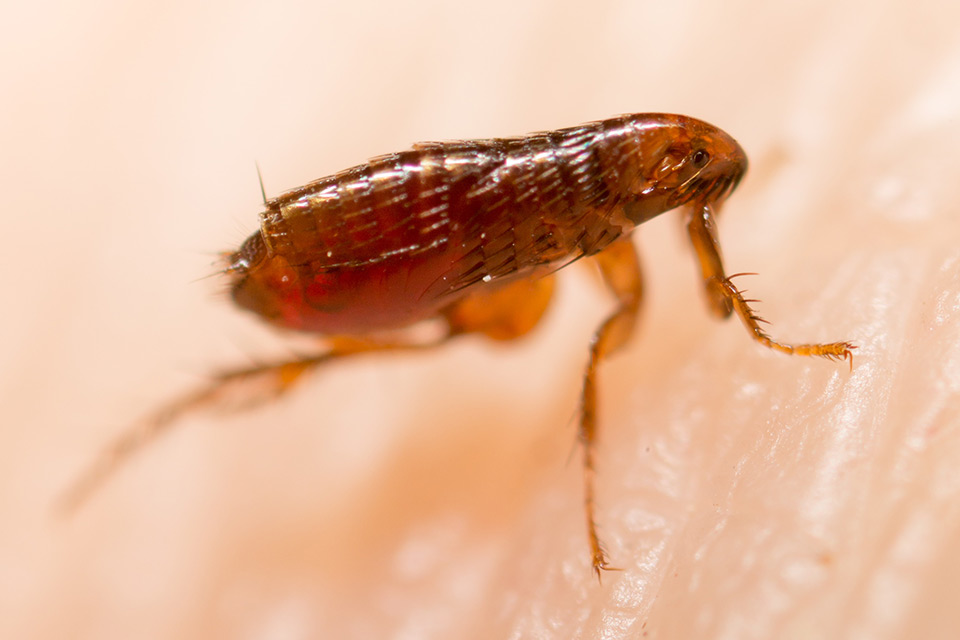
Nature can pack a lot into small sizes. That’s certainly true of the flea, a barely visible insect that nevertheless propelled the deadly bubonic plague through the Middle Ages. Fortunately, you don’t see a lot of plague going around any more, at least of the bubonic sort, but the flea is still very much in our lives, and in the lives of our pets. It may be wise to know more about this little bloodsucking creature, so here’s everything you should know about fleas.
Fleas are small, wingless parasites that feed on warm-blooded creatures, including humans. Their bodies are designed to optimally live in the hair, which is one reason why they prefer living on cats and dogs to humans.
While they are flightless, they have incredibly strong legs that help them jump, which is how they find and move between different hosts. (For comparison, if humans were built like fleas, we could jump over the Eiffel Tower with an acceleration three times faster than the fastest current rocket.) This leg strength also enables them to lift objects 500 times their own body weight.
While the plague may be a thing of the past, fleas do still carry typhus between hosts, making them a danger to public health. Usually, an infected flea will bite a rat, which will then bite a human, which was a similar disease pathway for the bubonic plague.
Flea bites can often be distinguished as being small, red, and often three bumps together that are itchy. Blisters can also form if you have an allergy to flea bites. Over the counter hydrocortisone cream can be used to treat flea bites and the itching they cause.
Certain species of insects, including mites, as well as bacteria, fungi, and other microscopic parasites, can give fleas a taste of their own medicine, feeding off the fleas.
If fleas don’t find a host within five to seven days of being born, they die. Female fleas are not able to lay eggs until they find a host. After doing so, they’re able to lay eggs within the next 48 hours. Over the course of their lifetime, female fleas can lay 2000 eggs.
When it comes to flea control in your home, here are some ways you can prevent an infestation:
- Vacuum, steam clean, and wash all bedding, including your pet’s bedding
- Mow the lawn on a regular basis, replace loose mortar, and remove puddles and other standing water sites around your property
- Keep an eye on your pet’s hygiene. Pets should be grooming themselves. If they stop, or if their hygiene has worsened, consult a vet.
However, if you’re facing a full-blown infestation, it’s important to contact a licensed pest professional. Call us at (360) 935-4200 or reach out to us online to get professional help from GoodMonsters ASAP!